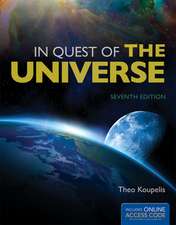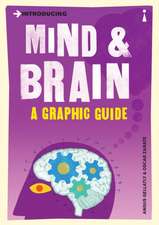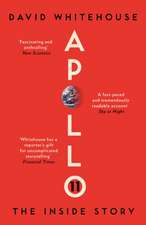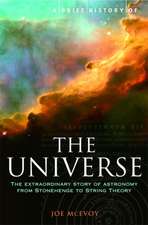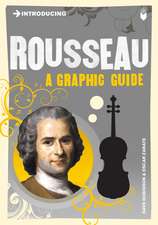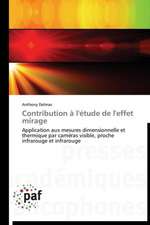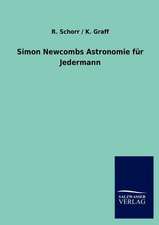Introducing Quantum Theory: A Graphic Guide: Introducing...
Autor J. P. McEvoy, Oscar Zarateen Limba Engleză Paperback – 5 sep 2007
Din seria Introducing...
-
 Preț: 56.70 lei
Preț: 56.70 lei -
 Preț: 56.66 lei
Preț: 56.66 lei -
 Preț: 56.85 lei
Preț: 56.85 lei -
 Preț: 50.60 lei
Preț: 50.60 lei -
 Preț: 56.45 lei
Preț: 56.45 lei -
 Preț: 56.70 lei
Preț: 56.70 lei -
 Preț: 56.70 lei
Preț: 56.70 lei -
 Preț: 56.45 lei
Preț: 56.45 lei -
 Preț: 56.70 lei
Preț: 56.70 lei -
 Preț: 56.70 lei
Preț: 56.70 lei -
 Preț: 56.70 lei
Preț: 56.70 lei -
 Preț: 56.70 lei
Preț: 56.70 lei -
 Preț: 56.70 lei
Preț: 56.70 lei -
 Preț: 50.60 lei
Preț: 50.60 lei -
 Preț: 50.72 lei
Preț: 50.72 lei -
 Preț: 50.60 lei
Preț: 50.60 lei -
 Preț: 56.70 lei
Preț: 56.70 lei -
 Preț: 56.70 lei
Preț: 56.70 lei - 17%
 Preț: 47.19 lei
Preț: 47.19 lei -
 Preț: 50.60 lei
Preț: 50.60 lei -
 Preț: 56.70 lei
Preț: 56.70 lei -
 Preț: 56.70 lei
Preț: 56.70 lei -
 Preț: 84.72 lei
Preț: 84.72 lei -
 Preț: 56.10 lei
Preț: 56.10 lei -
 Preț: 56.70 lei
Preț: 56.70 lei -
 Preț: 56.70 lei
Preț: 56.70 lei -
 Preț: 56.70 lei
Preț: 56.70 lei -
 Preț: 56.70 lei
Preț: 56.70 lei - 5%
 Preț: 53.87 lei
Preț: 53.87 lei -
 Preț: 91.59 lei
Preț: 91.59 lei -
 Preț: 50.60 lei
Preț: 50.60 lei -
 Preț: 50.57 lei
Preț: 50.57 lei -
 Preț: 50.60 lei
Preț: 50.60 lei -
 Preț: 56.70 lei
Preț: 56.70 lei -
 Preț: 56.70 lei
Preț: 56.70 lei -
 Preț: 56.45 lei
Preț: 56.45 lei -
 Preț: 56.66 lei
Preț: 56.66 lei -
 Preț: 50.35 lei
Preț: 50.35 lei -
 Preț: 56.70 lei
Preț: 56.70 lei -
 Preț: 56.70 lei
Preț: 56.70 lei -
 Preț: 50.60 lei
Preț: 50.60 lei -
 Preț: 56.70 lei
Preț: 56.70 lei -
 Preț: 56.00 lei
Preț: 56.00 lei -
 Preț: 56.70 lei
Preț: 56.70 lei -
 Preț: 56.70 lei
Preț: 56.70 lei -
 Preț: 56.70 lei
Preț: 56.70 lei -
 Preț: 109.90 lei
Preț: 109.90 lei -
 Preț: 109.82 lei
Preț: 109.82 lei -
 Preț: 56.45 lei
Preț: 56.45 lei
Preț: 56.45 lei
Nou
10.80€ • 11.24$ • 8.92£
Carte disponibilă
Livrare economică 24 martie-07 aprilie
Livrare express 07-13 martie pentru 15.58 lei
Specificații
ISBN-10: 1840468505
Pagini: 176
Ilustrații: illustrations
Dimensiuni: 118 x 168 x 13 mm
Greutate: 0.14 kg
Ediția:Fourth Edition
Editura: Icon Books Ltd
Colecția Icon Books Ltd
Seria Introducing...
Locul publicării:Duxford, United Kingdom
Notă biografică
J.P. McEvoy is a former research scientist and now a science journalist. Oscar Zarate is a highly acclaimed graphic artist who has illustrated many Introducing titles. His prize-winning graphic novel A Small Killing is known throughout the world.
Descriere
Quantum theory confronts us with bizarre paradoxes which contradict the logic of classical physics. At the subatomic level, one particle seems to know what the others are doing, and according to Heisenberg's "uncertainty principle", there is a limit on how accurately nature can be observed. And yet the theory is amazingly accurate and widely applied, explaining all of chemistry and most of physics. "Introducing Quantum Theory" takes us on a step-by-step tour with the key figures, including Planck, Einstein, Bohr, Heisenberg and Schrodinger. Each contributed at least one crucial concept to the theory. The puzzle of the wave-particle duality is here, along with descriptions of the two questions raised against Bohr's "Copenhagen Interpretation" - the famous "dead and alive cat" and the EPR paradox. Both remain unresolved.


